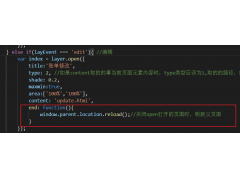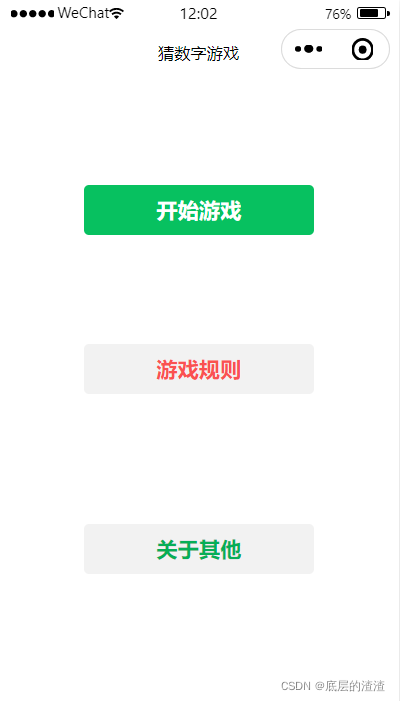Unit Testing Angular Service that uses $timeout with Jasmine#39;s Mock Clock(使用 $timeout 和 Jasmine 的模拟时钟的单元测试 Angular 服务)
问题描述
我的一个 Angular 服务中有一个函数,我希望定期重复调用该函数.我想使用 $timeout 来做到这一点.它看起来像这样:
I have a function inside one of my angular services that I'd like to be called repeatedly at a regular interval. I'd like to do this using $timeout. It looks something like this:
var interval = 1000; // Or something
var _tick = function () {
$timeout(function () {
doStuff();
_tick();
}, interval);
};
_tick();
目前,我对如何使用 Jasmine 进行单元测试感到困惑 - 我该怎么做?如果我使用 $timeout.flush() 那么函数调用会无限期地发生.如果我使用 Jasmine 的模拟时钟,$timeout 似乎不受影响.基本上,如果我能做到这一点,我应该很高兴:
I'm stumped on how to unit test this with Jasmine at the moment - How do I do this? If I use $timeout.flush() then the function calls occur indefinitely. If I use Jasmine's mock clock, $timeout seems to be unaffected. Basically if I can get this working, I should be good to go:
describe("ANGULAR Manually ticking the Jasmine Mock Clock", function() {
var timerCallback, $timeout;
beforeEach(inject(function($injector) {
$timeout = $injector.get('$timeout');
timerCallback = jasmine.createSpy('timerCallback');
jasmine.Clock.useMock();
}));
it("causes a timeout to be called synchronously", function() {
$timeout(function() {
timerCallback();
}, 100);
expect(timerCallback).not.toHaveBeenCalled();
jasmine.Clock.tick(101);
expect(timerCallback).toHaveBeenCalled();
});
});
这两种变体有效,但对我没有帮助:
These two variations work, but do not help me:
describe("Manually ticking the Jasmine Mock Clock", function() {
var timerCallback;
beforeEach(function() {
timerCallback = jasmine.createSpy('timerCallback');
jasmine.Clock.useMock();
});
it("causes a timeout to be called synchronously", function() {
setTimeout(function() {
timerCallback();
}, 100);
expect(timerCallback).not.toHaveBeenCalled();
jasmine.Clock.tick(101);
expect(timerCallback).toHaveBeenCalled();
});
});
describe("ANGULAR Manually flushing $timeout", function() {
var timerCallback, $timeout;
beforeEach(inject(function($injector) {
$timeout = $injector.get('$timeout');
timerCallback = jasmine.createSpy('timerCallback');
}));
it("causes a timeout to be called synchronously", function() {
$timeout(function() {
timerCallback();
}, 100);
expect(timerCallback).not.toHaveBeenCalled();
$timeout.flush();
expect(timerCallback).toHaveBeenCalled();
});
});
提前致谢!
推荐答案
不要使用 Jasmine 的时钟使您的测试异步.相反,使用 $timeout.flush() 来同步维护测试流程.设置起来可能有点棘手,但一旦你得到它,你的测试就会更快,更可控.
Do not make your test Async by using Jasmine's clock. Instead, use $timeout.flush() to synchronously maintain the flow of the test. It may be a bit tricky to setup, but once you get it then your tests will be faster and more controlled.
下面是一个使用这种方法进行测试的示例:https://github.com/angular/angular.js/blob/master/test/ngAnimate/animateSpec.js#L618
Here's an example of a test that does it using this approach: https://github.com/angular/angular.js/blob/master/test/ngAnimate/animateSpec.js#L618
这篇关于使用 $timeout 和 Jasmine 的模拟时钟的单元测试 Angular 服务的文章就介绍到这了,希望我们推荐的答案对大家有所帮助,也希望大家多多支持编程学习网!
本文标题为:使用 $timeout 和 Jasmine 的模拟时钟的单元测试 An


- 使用 iframe URL 的 jQuery UI 对话框 2022-01-01
- 如何向 ipc 渲染器发送添加回调 2022-01-01
- 如何调试 CSS/Javascript 悬停问题 2022-01-01
- 我不能使用 json 使用 react 向我的 web api 发出 Post 请求 2022-01-01
- 如何显示带有换行符的文本标签? 2022-01-01
- 从原点悬停时触发 translateY() 2022-01-01
- 是否可以将标志传递给 Gulp 以使其以不同的方式 2022-01-01
- 在不使用循环的情况下查找数字数组中的一项 2022-01-01
- 为什么悬停在委托事件处理程序中不起作用? 2022-01-01
- 为什么我的页面无法在 Github 上加载? 2022-01-01









